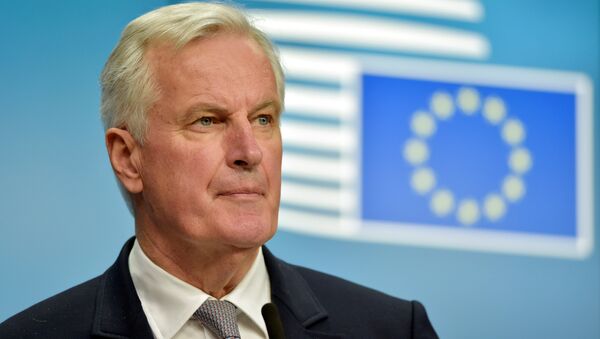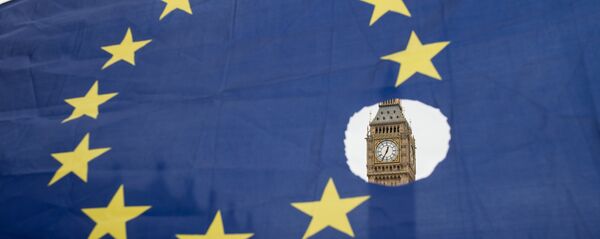Speaking to the Guardian, European Chief Negotiator for Brexit Michel Barnier stated that the EU would not accept a special deal for British banks and financial companies as part of the new trade agreement.
Barnier highlighted that following the UK's withdrawal from the EU, the country's financial services will no longer be authorized to freely operate within the Union, effectively crippling the entire British financial sector which accounts for as much as 80 percent of the country's economy.
"There is no place [for financial services]. There is not a single trade agreement that is open to financial services. It doesn't exist," he declared.
In a move that will infuriate die-hard Eurosceptics, Barnier also stated that during the post-Brexit transitional period the UK must continue to submit to the EU's "complete architecture," including new European laws that would be made without the participation of British MEPs, food regulatory policies and the jurisdiction of the European Court of Justice (ECJ).
READ MORE: Models for Post-Brexit UK-EU Trade Agreement and Their Pitfalls
"It will be essentially the economic status quo," he said.
"We will not accept from the other side, regulatory competition against social rights, against environmental rights, against consumer rights and against fiscal regulations… Or against financial stability."
Barnier's comments throw a wrench into Theresa May's work to ensure that her "bespoke and ambitious" trade deal is accepted by the 27 EU member states.
Earlier, Brexit Secretary David Davies insisted that the UK-EU trade deal should be "far more ambitious" than the free trade agreement reached between the Union and Canada in 2016 by including British financial services.
READ MORE: Not an 'Economic Models' Fan, UK Minister Admits to No Analysis of Brexit Impact
Barnier, however, denied the possibility of the so-called "Canada plus plus plus" model, claiming that the terms set forth by the UK on the jurisdiction of the ECJ, the migration policy and food standards limit the scope of the trade deal.
The EU and the British Government are expected to move towards trade negotiations following the European leadership's declaration that "sufficient progress" was made in talks on three fundamental issues, the Irish border, the Brexit divorce bill and the citizens' rights.




